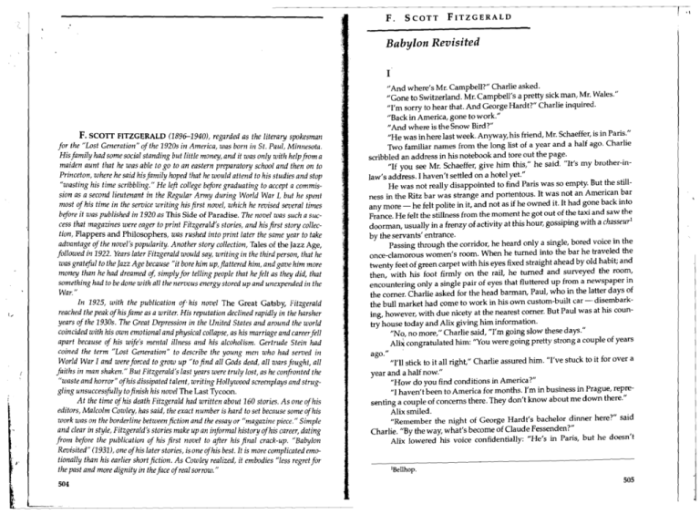Embark on an enthralling journey with the Agents of Babylon Study Guide, where history, intrigue, and cultural legacy intertwine. Delve into the enigmatic world of these ancient figures, unraveling their roles, impact, and enduring influence on civilization.
From their historical origins to their portrayal in modern culture, this guide provides a comprehensive overview of the Agents of Babylon, offering a deeper understanding of their significance and the enduring fascination they continue to inspire.
Introduction
The Agents of Babylon study guide provides comprehensive materials to support your understanding of the novel by Chris Kuzneski. This guide explores the novel’s themes, characters, and literary devices to enhance your appreciation and comprehension of the work.
The novel follows the journey of Max, a young man who becomes entangled in a dangerous conspiracy involving ancient Babylonian artifacts. As he investigates the mystery, Max uncovers a hidden world of secret societies and powerful forces at play.
The Historical Context of Babylon
To fully grasp the significance of the novel’s Babylonian elements, it is essential to understand the historical context of Babylon. Babylon was an ancient Mesopotamian city that played a pivotal role in the development of human civilization.
- Babylon’s rich history and cultural heritage provide a backdrop for the novel’s exploration of ancient mysteries and their relevance to contemporary events.
- The novel draws upon the historical significance of Babylon as a center of knowledge, power, and intrigue, adding depth to the narrative.
Historical Context

The Agents of Babylon, also known as the Babylonian Agents or Babylonian Envoys, were a group of individuals who played a significant role in the ancient Near East during the Neo-Babylonian Empire (626-539 BCE).
These Agents were officials sent by the Babylonian kings to represent their interests in foreign lands. They served as diplomats, envoys, and spies, gathering intelligence and negotiating treaties on behalf of the Babylonian Empire.
Timeline of Key Events
- 626 BCE:Nebuchadnezzar II becomes king of Babylon and establishes the Neo-Babylonian Empire.
- 605 BCE:Nebuchadnezzar II sends Agents to Judah to demand tribute.
- 597 BCE:Nebuchadnezzar II sends Agents to Jerusalem to oversee the deportation of Jewish elites.
- 586 BCE:Nebuchadnezzar II conquers Jerusalem and appoints Gedaliah as governor of Judah.
- 582 BCE:Gedaliah is assassinated by Ishmael, a member of the royal family of Judah.
- 539 BCE:The Neo-Babylonian Empire is conquered by the Persian Empire.
Agents of Babylon: A Comprehensive Overview

The Agents of Babylon were a diverse group of individuals who played crucial roles in the Babylonian Empire. They were responsible for carrying out the empire’s administrative, military, and religious functions.
Types of Agents
- Administrative Agents:These agents were responsible for managing the day-to-day operations of the empire. They collected taxes, maintained records, and oversaw the construction and maintenance of infrastructure.
- Military Agents:These agents were responsible for the defense of the empire. They led armies into battle, garrisoned fortresses, and maintained the empire’s military strength.
- Religious Agents:These agents were responsible for the religious affairs of the empire. They performed rituals, interpreted omens, and advised the king on religious matters.
Roles and Responsibilities
The Agents of Babylon played a variety of roles and responsibilities within the empire. They were responsible for:
- Maintaining order and stability:The Agents of Babylon were responsible for enforcing the laws of the empire and maintaining peace and order. They suppressed rebellions, punished criminals, and resolved disputes.
- Collecting taxes and revenue:The Agents of Babylon were responsible for collecting taxes and other revenue from the empire’s subjects. They used this revenue to fund the empire’s military, administrative, and religious activities.
- Providing justice and resolving disputes:The Agents of Babylon were responsible for providing justice and resolving disputes among the empire’s subjects. They heard cases, issued judgments, and enforced the law.
Historical Examples
The Agents of Babylon played a vital role in the success of the Babylonian Empire. They were responsible for maintaining the empire’s vast territory, defending it from its enemies, and ensuring the well-being of its people.
One example of the Agents of Babylon in action is the story of Nehemiah. Nehemiah was a Jewish official who served as the governor of the province of Judah under the Babylonian Empire. He led a group of Jewish exiles back to Jerusalem and oversaw the rebuilding of the city walls.
Nehemiah’s work is a testament to the power and influence of the Agents of Babylon.
The Impact of the Agents of Babylon: Agents Of Babylon Study Guide
The Agents of Babylon, a clandestine organization operating during the Babylonian Empire, played a significant role in shaping the course of history. Their actions left an enduring legacy, both positive and negative, on the development of civilization.
Positive Impacts, Agents of babylon study guide
The Agents of Babylon were instrumental in promoting trade and commerce throughout the empire. They established a network of agents who facilitated the exchange of goods and ideas between different regions. This stimulated economic growth and led to the spread of cultural practices and technological advancements.
Furthermore, the Agents played a role in maintaining political stability within the Babylonian Empire. They monitored potential threats to the throne and acted to suppress dissent. This helped to ensure a relatively peaceful and orderly society, which allowed for the flourishing of arts, science, and literature.
Agents of Babylon study guide offers comprehensive materials for understanding this historical period. For additional insights on military travel, you can refer to travel card 101 answers army . This resource provides valuable information on army travel policies and procedures.
Returning to Agents of Babylon, the study guide provides detailed analysis and discussion questions to enhance your understanding of this ancient civilization.
Negative Impacts
Despite their positive contributions, the Agents of Babylon also engaged in activities that had negative consequences. They were known to use their influence to manipulate political outcomes and amass wealth for themselves. This led to corruption and inequality within the empire.
Moreover, the Agents’ surveillance and suppression of dissent stifled intellectual inquiry and free thought. This hindered the progress of scientific and philosophical knowledge and created a climate of fear and suspicion.
Influence on Historical Events
The Agents of Babylon played a pivotal role in several key historical events. For instance, they were involved in the assassination of King Nabonidus, which led to the rise of Cyrus the Great and the Persian Empire.
Additionally, the Agents played a role in the Babylonian Exile, when the Jewish people were forcibly relocated to Babylonia. They monitored the Jewish community and reported on their activities to the Babylonian authorities.
Agents of Babylon in Modern Culture
The Agents of Babylon have left a lasting legacy in modern society. Their influence can be seen in popular culture, literature, and even in contemporary thought and behavior.The Agents have been portrayed in various forms in popular culture. In films and television shows, they are often depicted as shadowy figures working behind the scenes to manipulate events.
In literature, they are frequently used as symbols of power and corruption.One example of the Agents’ influence in modern culture is the conspiracy theory movement. Many conspiracy theorists believe that the Agents are real and that they are responsible for a wide range of events, from the assassination of John F.
Kennedy to the 9/11 attacks.Another example of the Agents’ influence is the rise of the surveillance state. In the wake of the 9/11 attacks, governments around the world have increased their surveillance capabilities. This has led to concerns that the government is using its surveillance powers to spy on its citizens.The
Agents of Babylon continue to influence contemporary thought and behavior in many ways. They are a reminder that power can be used for both good and evil, and that it is important to be vigilant against those who would abuse their power.
Study Guide Resources
This study guide provides a comprehensive overview of the Agents of Babylon, their historical context, and their impact on modern culture. To further your understanding, we recommend exploring the following resources:
Recommended Readings
“The Agents of Babylon
The Rise and Fall of the CIA in the Middle East” by Stephen Kinzer
“Legacy of Ashes
The History of the CIA” by Tim Weiner
“The CIA and the Cultural Cold War” by Frances Stonor Saunders
Online Databases
CIA World Factbook
https://www.cia.gov/the-world-factbook/
National Security Archive
https://nsarchive.gwu.edu/
declassified CIA documents
https://www.cia.gov/readingroom/historical-collections
Activities and Discussion Questions
- Discuss the role of the Agents of Babylon in the Cold War.
- Analyze the impact of the CIA’s covert operations on foreign governments and societies.
- Explore the ethical implications of using covert operations to achieve political goals.
Common Queries
Who were the Agents of Babylon?
The Agents of Babylon were a network of covert operatives active in the ancient world, tasked with gathering intelligence, influencing events, and carrying out clandestine missions.
What was their role in ancient civilization?
The Agents played a significant role in shaping historical events, providing valuable information to rulers and manipulating situations to achieve desired outcomes.
How have the Agents of Babylon been portrayed in modern culture?
The Agents have been featured in numerous works of literature, film, and television, often depicted as enigmatic figures involved in espionage, intrigue, and conspiracy.